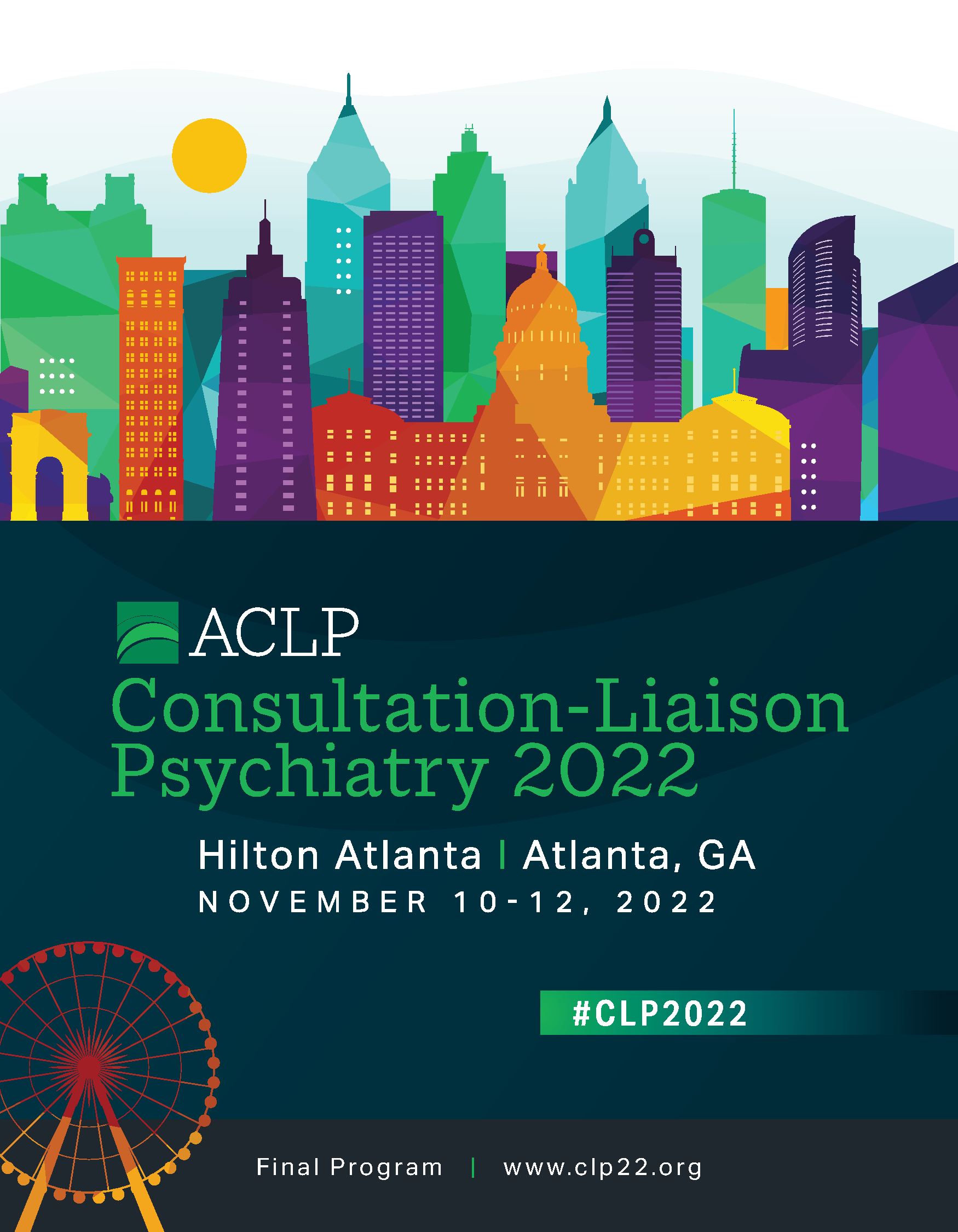Back
Brief Oral Papers
Session: Oral Presentation Session 03: Psycho-oncology and Palliative care; Diversity, Equity and Inclusion
Proactive Psycho-Oncology Consultation and Liaison Service: Collaborative Efforts for Early Intervention
Friday, November 11, 2022
11:00 AM – 12:30 PM
Location: Room 204-205
.jpg)
Daniel Fishman, MD (he/him/his)
Assistant Clinical Professor
Stanford School of Medicine
Palo Alto, California
Sheila Lahijani, MD, FACLP
Associate Clinical Professor
Stanford University School of Medicine
Palo Alto, California
Presenting Author(s)
Co-Author(s)
Abstract: Background
Patients admitted for hematopoietic stem cell transplant (HSCT) experience significantly high rates of depression and anxiety (15-40%), PTSD(5-25%); and delirium (40-70%). Delirium during HSCT has been associated with worse subsequent neurocognitive functioning, lower quality of life, and 14-fold greater mortality rate (Nakamura, 2019). In non-oncology settings, proactive consultation models with clinically informed screening and integrated care delivery have demonstrated decreased length of stays, improved provider satisfaction, and decreased consultation latency (Oldham, 2020). Given high rates of psychopathology and prolonged hospitalization, patients undergoing HSCT are uniquely suited for the proactive psychiatry consult model.
Method
A six-month pilot proactive psychiatry consult service was developed in collaboration with blood and marrow transplant (BMT) physician leadership, nursing staff, and social work. Patients admitted for HSCT underwent a multi-disciplinary screening process to identify those who would benefit from an earlier psychiatry consult. New patients were screened by criteria representing risk for altered mental status, severe psychopathology, or distress and behavioral disturbances while hospitalized. Patients were screened by nursing staff each shift validated delirium, anxiety, and depression screening tools.
Results
Data analysis is ongoing as the pilot phase nears completion. Preliminary results from the first month show that 52 unique patients screened positive over the first four weeks. 25% of depression and anxiety assessments were positive for anxiety, depression, or both. The full analysis will include (1) metrics comparing patients with psychiatric diagnoses before and after implementation of the proactive model, (2) epidemiological data on number of consults and presence of psychopathology, (3) provider satisfaction, and (4) concept data assessing the model’s impact.
Discussion
To the authors’ knowledge this is the first proactive psychiatry consult service specifically for a psycho-oncology population. Preliminary data supports the validity of this model, and we predict similar outcomes and values previously demonstrated in non-oncology settings. The development of the service will be described to support the development of a proactive psych-onc services at other institutions.
Conclusion
Through close collaboration and bidirectional communication with primary teams, a proactive psych-onc consult service appears to be a viable model to preemptively manage the high degree of psychopathology and distress of patients undergoing HSCT.
References
Nakamura, Z. M., Nash, R. P., Quillen, L. J., Richardson, D. R., McCall, R. C., & Park, E. M. (2019). Psychiatric care in hematopoietic stem cell transplantation. Psychosomatics, 60(3), 227-237.
Oldham, M. A., Walsh, P., Maeng, D. D., Zagursky, J., Stewart, K., Hawkins, S. M., & Lee, H. B. (2020). Integration of a proactive, multidisciplinary mental health team on hospital medicine improves provider and nursing satisfaction. Journal of psychosomatic research, 134, 110112.
Patients admitted for hematopoietic stem cell transplant (HSCT) experience significantly high rates of depression and anxiety (15-40%), PTSD(5-25%); and delirium (40-70%). Delirium during HSCT has been associated with worse subsequent neurocognitive functioning, lower quality of life, and 14-fold greater mortality rate (Nakamura, 2019). In non-oncology settings, proactive consultation models with clinically informed screening and integrated care delivery have demonstrated decreased length of stays, improved provider satisfaction, and decreased consultation latency (Oldham, 2020). Given high rates of psychopathology and prolonged hospitalization, patients undergoing HSCT are uniquely suited for the proactive psychiatry consult model.
Method
A six-month pilot proactive psychiatry consult service was developed in collaboration with blood and marrow transplant (BMT) physician leadership, nursing staff, and social work. Patients admitted for HSCT underwent a multi-disciplinary screening process to identify those who would benefit from an earlier psychiatry consult. New patients were screened by criteria representing risk for altered mental status, severe psychopathology, or distress and behavioral disturbances while hospitalized. Patients were screened by nursing staff each shift validated delirium, anxiety, and depression screening tools.
Results
Data analysis is ongoing as the pilot phase nears completion. Preliminary results from the first month show that 52 unique patients screened positive over the first four weeks. 25% of depression and anxiety assessments were positive for anxiety, depression, or both. The full analysis will include (1) metrics comparing patients with psychiatric diagnoses before and after implementation of the proactive model, (2) epidemiological data on number of consults and presence of psychopathology, (3) provider satisfaction, and (4) concept data assessing the model’s impact.
Discussion
To the authors’ knowledge this is the first proactive psychiatry consult service specifically for a psycho-oncology population. Preliminary data supports the validity of this model, and we predict similar outcomes and values previously demonstrated in non-oncology settings. The development of the service will be described to support the development of a proactive psych-onc services at other institutions.
Conclusion
Through close collaboration and bidirectional communication with primary teams, a proactive psych-onc consult service appears to be a viable model to preemptively manage the high degree of psychopathology and distress of patients undergoing HSCT.
References
Nakamura, Z. M., Nash, R. P., Quillen, L. J., Richardson, D. R., McCall, R. C., & Park, E. M. (2019). Psychiatric care in hematopoietic stem cell transplantation. Psychosomatics, 60(3), 227-237.
Oldham, M. A., Walsh, P., Maeng, D. D., Zagursky, J., Stewart, K., Hawkins, S. M., & Lee, H. B. (2020). Integration of a proactive, multidisciplinary mental health team on hospital medicine improves provider and nursing satisfaction. Journal of psychosomatic research, 134, 110112.

